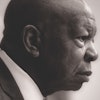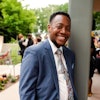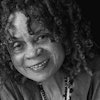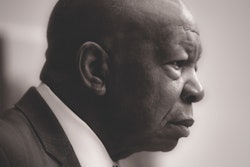NEW YORK
Students, scholars, and administrators from across the City University of New York (CUNY) gathered last week at the Borough of Manhattan Community College (BMCC) for an ethnic studies conference that both reflected on the discipline’s history and showed off new and on-going work. Titled “The Legacy and Future of Ethnic Studies at CUNY,” the spread of panels, presentations, and performances marked 50 years of ethnic studies at BMCC, culminating in the creation of the department of ethnic and race studies in April 2021.
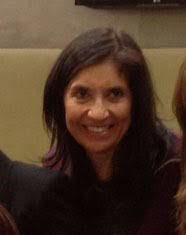 Dr. Patricia Mathews-Salazar, chairperson of the department of ethnic and race studies, Borough of Manhattan Community College
Dr. Patricia Mathews-Salazar, chairperson of the department of ethnic and race studies, Borough of Manhattan Community College
As the presentations made clear, ethnic studies has had to fight for legitimacy, at CUNY and elsewhere. As part of a panel entitled “Ethnic Studies Formation & Student Activism,” James Blake, a professor in the BMCC Counseling Center, discussed how, in 1970, BMCC students occupied the college president’s office in an effort to force the school to create a Black studies program and asked him to join them. Blake, who began his presentation by leading the audience in a student power chant, agreed to join them in spite of having a wife, children, and no tenure. He was jailed with the students, but the program was eventually established.
Another presenter on the same panel, Dr. Eleanor Drabo, was one the students agitating for Black studies. Now an adjunct lecturer in ethnic and race studies at BMCC, she described having to fight to get on elevators in CUNY buildings because people thought that she didn’t belong there. She described the journey towards an ethnic studies department as a constant push that required perseverance and connected those battles to today’s clashes over critical race theory.
“It’s just another level to what we’ve been fighting for all along,” she said.
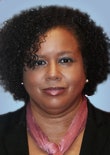 Dr. Dionne Bennett, assistant professor of African American studies at the New York City College of Technology
Dr. Dionne Bennett, assistant professor of African American studies at the New York City College of Technology
Other panels focused less on the history of ethnic studies and more on its practice. The program kicked off with a discussion focused on indigenous research that spanned from the decolonial poetics of the CHamoru diaspora (referring to natives of the Mariana Islands, including Guam) to violence against the Eastern Shoshone and Northern Arapaho in an Oklahoma border town. Wendy Barrales, a graduate student researcher at the CUNY Graduate Center, talked about her experiences starting an ethnic studies program at a high school for girls, which led to the creation of the women of color archive, an online project that documents the stories of matriarchs of color. Dennis Saavedra Carquin-Hamichad, also of the Graduate Center, talked about the moments of invisibility and hypervisibility that minoritized students experience in classrooms. And Jackelyn Mariano, an adjunct professor of Asian American studies at Hunter College, argued that education can take place in any environment, not just the classroom, and played a song from her Pinoy punk band, Material Support.
Attendees listed the first day’s keynote speech, by Queens College president Frank H. Wu as a highlight. Wu focused on affirmative action, arguing that public debate of the practice often amounts to sound and fury that doesn’t address problems of bigotry in a deep, long-lasting way.
“Frank Wu is always extremely energizing,” said Ann Matsuuchi, an instructional technology librarian and professor at LaGuardia Community College. She described his speech as a reassurance that “there are Asian American leaders who are not going to have the pretense of honorary whiteness [or] be swayed by some of the voices within the community that are negative.”
Hayley Wagner, an adjunct lecturer in ethnic and race studies at BMCC who moderated a panel about decolonializing the classroom, thought that Wu’s speech had strong resonance for proponents of ethnic studies.
“Affirmative action can’t be the end-all, be-all of activism. It’s a step in the right direction,” she said. “I think that’s really important for ethnic studies itself, because getting ethnic studies into colleges is just one step. It’s not enough to just have diversity in terms of faculty, or students, or classes; the classes themselves have to continuously question how we are teaching and what the student experience is.”
Although the conference represents a triumph for ethnic studies at BMCC, Wagner wasn’t alone in reflecting on progress still to be made.
“[BMCC’s] department is vibrant and existing, but it’s vibrant and existing in a context where it’s being under-supported, under-funded, threatened by political forces,” said Dr. David Klassen, an adjunct assistant professor in ethnic and race studies at BMCC. “This conference signals to me that people do want this legacy to continue, and that people realize the struggle has to continue.”
Jon Edelman can be reached at [email protected]

